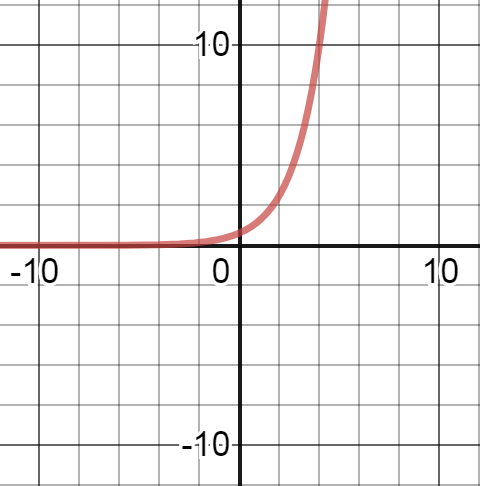Solving Linear equation
How to solve linear equation in one variable
The word equation is derived from word ‘equal’. Any expression having equal (=) sign is called equation. If any linear algebraic expression in one variable is equal to some integer or some other algebraic expression, then it is called algebraic equation.
Linear equations can be categorized as follows
1. When variable is only one side.
2. When variable is on both sides
When variable is only on one side:
We always solve the equation for an unknown variable using the same operations on both sides so that equation doesn’t become uneven and both sides remain balanced. Lets look at some examples of multi step equations starting from single step equations.
Example1. Solve
Solution: Our ultimate aim is to isolate x here. So we need to get rid of 4/5 , for that we subtract 4/5 from both sides.
[ subtracting 4/5 from both sides]
Example 2. Solve
Solution: We move close to x step by step. For that first we add 5 to both sides.
Using the reverse operation, multiply both sides with 3
x = 9
Example3. Solve 3(x-1) +2 = 14
Solution: This equation can be solved using two ways. Either you can first distribute 3 and combine like terms on left before isolating x, or you can first subtract 2 and then divide both sides by 3. But if you get fraction on dividing then better to skip this way and use other way instead.
3(x-1) +2 = 14
3(x-1) = 12 [subtracted 2 from both sides]
x -1 = 4
x = 5
When variable is on both sides:
When variables on both sides of equation, we try to bring the variables together either on left or on right side and then move forward with the same process of isolating variable.
Example4. Solve for x, 3x-5 = x+3
Solution: 3x-5 =x+3
3x-x -5 = x-x+3 [ subtracting x from both sides]
2x-5 = 3
2x-5+5 = 3+5 [ adding 5 on both sides]
2x = 8
x = 8/2 = 4
Example5. Solve
Solution: [subtracted 5x/2 from both sides]\
x = -15/4
Example6. Solve : 5-3(x-1) = 2(3x-5)
Solution: Distribute -3 on left and 2 on right, we get,
5- 3(x)-3(-1) = 2(3x) +2(-5)
5-3x+3 = 6x -10
-3x + 8 = 6x-10
-3x-6x = -10-8
– 9x = -18
x = 2
Word problems on linear equations in one variable:
Most students get overwhelmed by word problems but these are not hard if each word is interpreted correctly. Lets work on some examples .
Example6.Twice of a number when increased by 3 becomes 9. Find the
number.
Solution: First we assume unknown number as x. Now we get the words like this.
Twice of x , increased by 3 becomes 9.
2x + 3 = 9
Replace words ‘increased by’ with + and ‘becomes’ with = sign.
We got the equation and now solve it just like we solve any linear
equation.
2x + 3 = 9
2x+3-3=9-3 [subtracting 3 from both sides]
2x = 6
x = 6/2 = 3
Example7. In a martial arts class, number of girls were ten more than twice the number of boys. If there were total 85 students, then find number of boys and girls in the class.
Solution: First we assume the unknown variable as x. Since information about girls are dependent on boys so we assume number of boys as x.
Let number of boys = x
Number of girls = ten more than twice the number of boys
Number of girls = 10 + twice (x)
Number of girls = 10 + 2x
boys + girls = total students
x + 10+2x = 85
3x+10 = 85
3x = 85-10
3? = 75
x =75/3 = 25
So boys = 25
girls = 10+2(25)= 60
Example8. After an increment of 25% , Maria got her monthly salary as $4000. Find her salary per month before increment.
Solution: We generally assume what we need to find. So lets assume Maria’s salary before increment = x
Original salary + increment = new salary
x + 25% of x = 4000
x + 0.25x = 4000
1.25 x = 4000
1.25?/1.25 = 4000/1.25 = 3200
x= 3200
Maria’s salary before increment was $3200
Practice problems:
Solve the following linear equations for x.
1. 7x – 2 = 3/2
2. 5+3(x+2) = 20
3. 9-(x+3) = 5(x-1)+3
4. Sum of two numbers is 25. If one number is one fourth of other ,
then find both the numbers
5. Mark bought some eatables to celebrate his birthday. He bought
Twice as many hot dogs as pizzas and one third as many burgers
as hot dogs. If he bought total 22 eatable items then find each
kind of food he bought.
Answers:
1. 1/2
2. 3
3. 4/3
4. 20, 5
5. Pizzas= 6 ,Hot dogs =12 ,Burgers = 4

